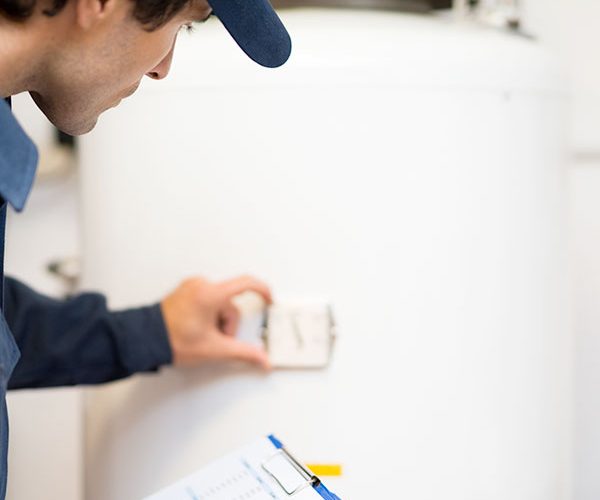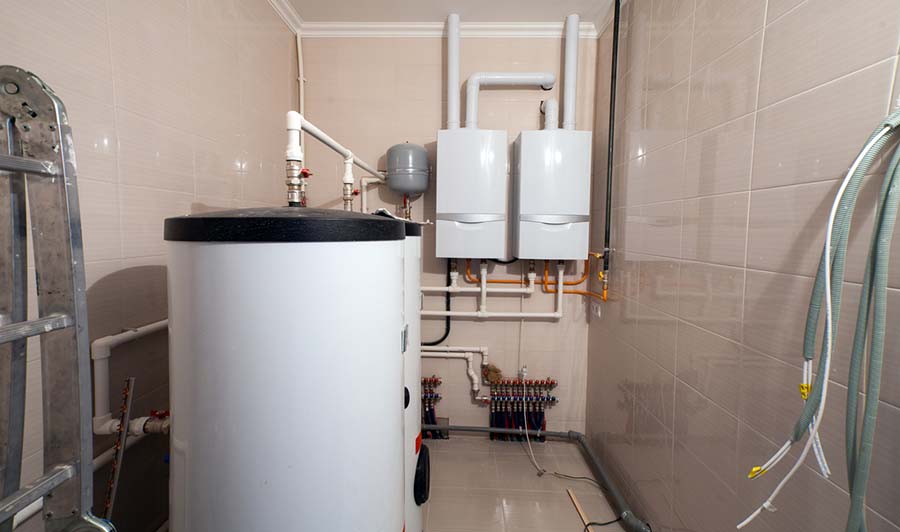Dealing with the Primary Water Heater Urgencies
Dealing with the Primary Water Heater Urgencies
Blog Article
Here in the next paragraph you will discover additional reliable ideas all about The Importance of Water Heater Maintenance.

A water heater is just one of the most important standard appliances that can be located in a house. With water heaters, you do not require to undergo the stress of heating water manually every single time there is a need to take a bath, do the laundry, or the dishes. There is always a possibility that your water heater would certainly act up as with the majority of mechanical devices.
It is essential to note any little breakdown as well as tackle it rapidly before things leave hand. A lot of times, your water heater begins to malfunction when there is a build-up of sediments as a result of continual usage. As a safety measure, routine flushing of your water heater is recommended to avoid sediment build-up as well as protect against practical failing.
Common hot water heater emergencies as well as how to take care of them
Too little hot water
It might be that the water heating unit can not sustain the warm water need for your house. You could update your water heating system to one with a larger ability.
Rising and fall water temperature.
Your hot water heater might begin generating water of different temperature levels typically ice scalding or cool hot. In this scenario, the first thing you do is to make sure that the temperature level is set to the preferred degree. If after doing this, the water temperature keeps altering throughout showers or various other activities, you might have a malfunctioning thermostat. There could be a requirement to replace either the heating or the thermostat device of your water heater.
Leaking water heater tank.
In this situation, you need to transform off your water heating system, enable it to cool down, and carefully look for the resource of the problem. At times, all you need to do is to tighten up a couple of screws or pipeline connections in cases of small leaks. If this does not function and the leakage continues, you could require to use the services of a service technician for a proper replacement.
Tarnished or smelly water
You require to understand if the problem is from the tank or the water source when this occurs. You are specific that it is your water heater that is malfunctioning if there is no funny odor when you run cool water. The smelly water can be caused by rust or the buildup of bacteria or debris in the water heater storage tank. As soon as you discover this, you can attempt flushing out your container or changing the anode if the problem continues. The function of the anode is to clean out germs from your tank. Considering that the anode pole substitute requires a comprehensive knowledge of your water heating system, you will certainly require the aid of a professional.
Conclusion
Some property owners neglect little caution and minor faults in their water heater unit. This only causes more damage as well as a feasible complete breakdown of your device. You ought to manage your water heater faults as quickly as they come near prevent even more costs and also unnecessary emergency difficulties.
With water heating systems, you don't require to go through the stress of heating water by hand every time there is a demand to take a bath, do the washing, or the recipes. It might be that the water heater can't sustain the warm water need for your home. Your water heating system can start creating water of different temperatures generally ice scalding or chilly hot. If there is no funny scent when you run chilly water, after that you are certain that it is your water heating system that is malfunctioning. The odiferous water can be triggered by corrosion or the accumulation of bacteria or debris in the water heating unit tank.
Why Is My Water Heater Leaking?
When a water heater bursts in a home, it is a shocking event, not to mention a messy one, and it could potentially cause a lot of expensive damage. If your hot water heater burst, you’re probably wondering why this happens and what to do next.
In general, the basic reason why hot water heaters burst is that there is corrosion within the tank, which can lead to the tank bursting at its seams. Unfortunately, there are several possible underlying causes that can contribute to water heater explosions, and it’s not always apparent which one is the culprit.
Sometimes there are risk factors or warning signs that could indicate a water heater explosion is imminent, but not always. In order to understand the risk factors that could contribute to a water heater exploding, it’s important first to understand the type of water heater that you have in your home.
What Are The Common Causes of Water Heater Leaks?
In general, it's a good idea to call a emergency plumbing company if you have any questions about the cause of your water heater leak. The most frequent reasons why water heaters leak are:
Drain valve
The drain valve is used to empty the tank during maintenance visits and replacements by plumbers and homeowners. The drain valve is also utilized by homeowners when cleaning the tank is required. Over time, the valve becomes loose, allowing water to flow through. Leaks from the bottom of the valve, on the other hand, suggest that the component isn't waterproof. This situation calls for the installation of a new drain valve. Homeowners may replace this themselves, but it's better to get advice from a professional plumber before you do so.
Too much pressure
Water heaters are affected by naturally occurring water pressure, just like any other plumbing component. The hot water that generates steam and fills the vacant space causes pressure in water heaters. When the steam has no where to go, the pressure becomes too high. Any crack in the heater allows water to escape, relieving some of the pressure. When the water temperature is set too high or when water enters the system at large pressures, the heater's pressure rises.

Do you really like reading up on Is Your Water Heater Leaking?? Make a remark further down. We'd be interested to find out your suggestions about this content. We are looking forward that you visit us again before long. Are you aware of somebody who is inquisitive about the topic? Do not hesitate to share it. Thank you so much for your time invested reading it.
We value timeliness. Report this page